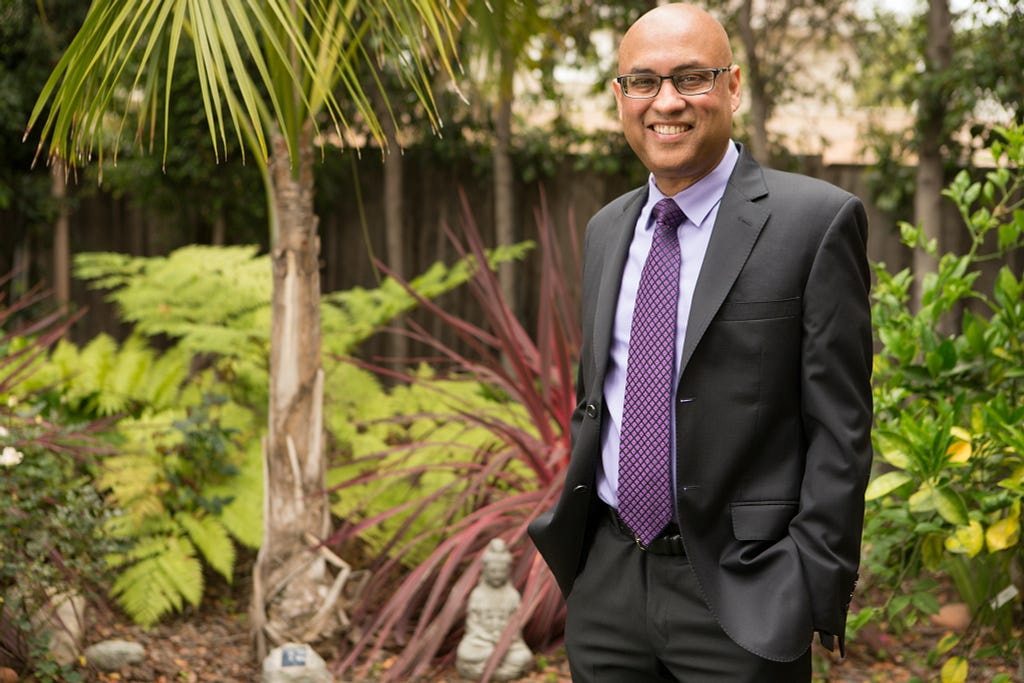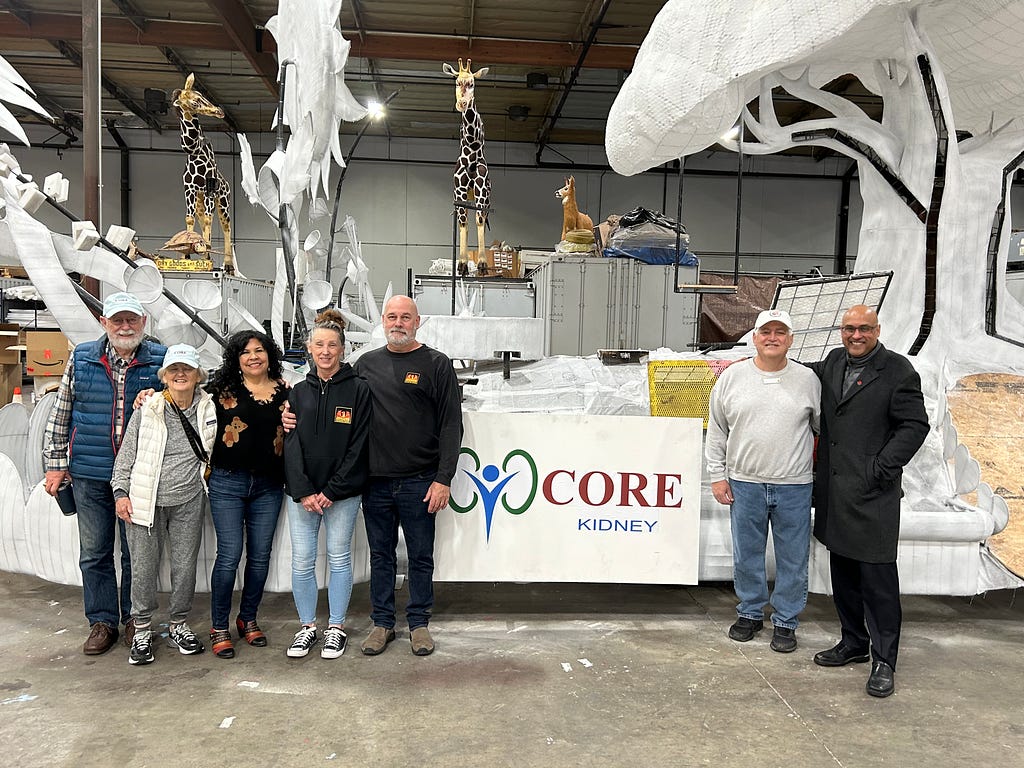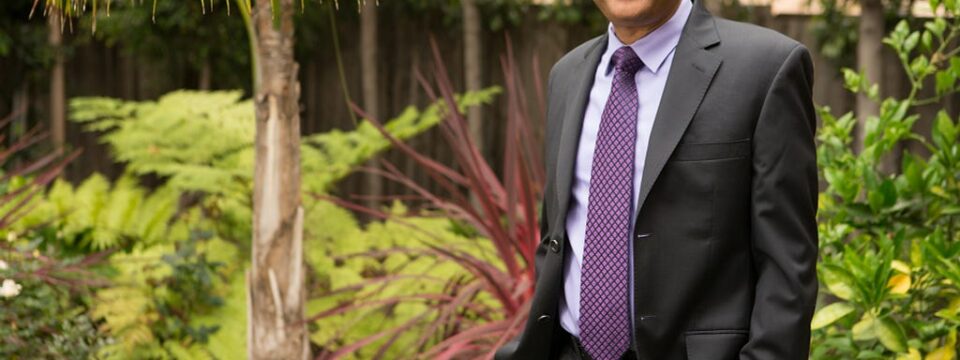
For me, being a leader means many things. First and foremost, it’s about driving your team to be the best they can be. That also entails leading in such a way that you create other leaders in the process. With that, you are making your team better people as a result of your guidance.
As part of my series about “individuals and organizations making an important social impact”, I had the pleasure of interviewing Dr. Anjay Rastogi.
Anjay Rastogi, MD PhD, is Professor and Clinical Chief of Nephrology at UCLA Health and the David Geffen School of Medicine at UCLA, Los Angeles, California. Dr. Rastogi is board-certified in Nephrology and has a doctoral degree (PhD) in Pharmacology. He did his Internal Medicine residency and Nephrology fellowship at UCLA; he completed his graduate training under the mentorship of Nobel Laureate Professor Louis Ignarro, also at UCLA. Dr. Rastogi is the founding Director of the UCLA Health CORE Kidney Program. This Program is based on the CORE values of Clinical Excellence, Outreach, Research, and Education.
Thank you so much for joining us in this interview series. Before we dive into our discussion our readers would love to “get to know you” a bit better. Can you tell us a story about what brought you to this specific career path and what led you to start CORE Kidney?
My father was my initial inspiration to pursue medicine. I was born and raised in Jaipur, India and I saw my father leave a lasting impact on the community. I remember coming home from school and seeing lines of people waiting outside our house for his help. Many of these people were poor and didn’t have much to give in terms of payment. Despite this, and with limited resources, he provided crucial medical assistance to those in need. I saw the impact he had on families through the power of what medicine and that motivated me to pursue this career.
When it comes to why I chose nephrology, I was immediately connected to the field after doing a rotation in it during my residency at UCLA Health. I found it to be a very intellectual field, but more importantly, I saw first-hand how it can directly impact patients and their families. This field allowed doctors to truly connect to their patients and that resonated with the original reason as to why I entered medicine in the first place, when I’d watch my father interact with patients during my childhood. There was this also huge unmet need of lack of public awareness about kidney health, poor outcomes despite high costs and organ shortage.
As far as how I started the CORE program, I realized the one of the most unmet needs in medical practice was that lack of comprehensive and integrated care. That includes involving everybody, from family members and so on, into the care process. CORE was my answer to addressing this by creating a route to community outreach to help patients feel supported, consoled, and understood in their journey.
Can you share the most interesting story that happened to you since you began leading CORE Kidney?
We have a patient, Louie, who just has a remarkable story. He grew up in South L.A. and was involved in gang life early on in his life. However, he eventually went down the straight path. He worked as a janitor for a news organization but was inspired to get involved in media and he’s now a very accomplished and celebrated reporter. However, when he was diagnosed with kidney disease, he was very lost and distraught. He felt his life had come to a standstill.
Through mere luck and chance, he saw my work and was able to get in touch with me. I was being honored by the George Lopez Foundation and his good friend, Elizabeth Espinosa, shared it on social media. Louie got in touch, and we connected over a Zoom call. During our conversation, he was visibly emotional, shedding tears while discussing his health challenges. It was quite striking to witness this transformation in someone who had once been associated with a tough, gangster image to have such a soft, kind presence with compassion in his heart. It really showed me how circumstances shape people and lead them to go down certain paths, but that’s not who they are on the inside.
Eventually, his sister will be donating a kidney on his behalf. Nowadays, he’s a passionate patient advocate who helps other kidney patients navigate their difficult journey. He is also heavily focused on promoting overall health in his own community in South L.A.
Can you describe how you or your organization is making a significant social impact?
Patients with advanced kidney disease often feel very lost and directionless. The biggest impact we make into these patients’ lives is the ability to provide support for the patient and their families. Treating end stage kidney disease is a complex pathway to navigate, but we are there with them every step of the way with the goal of helping them find a preemptive transplant. We provide more than just medical resources. We have ambassadors in the CORE Kidney program that have been through the struggle — who can guide other patients by sharing their own journeys. I may know about the science and treatment of kidney disease, but I can’t speak to the direct experience in the same way these patient advocates can. In that sense, we do more than just provide a pathway, we instill hope — and that is what keeps people alive. Without hope, a patient may not feel they have anything to live for and therefore, may not take those steps to improve their situation. It starts with the hope and belief that they will make it to the other side.
Can you tell us a story about a particular individual who was impacted or helped by your cause?
I had a patient come from Santa Maria right around the time when COVID-19 measures were in full effect. She was not on dialysis at the time and she was here for a transplant evaluation. Her lab results were very troubling so we sent her straight to the ER. I went to speak to her about home dialysis but many of the practitioners raised concerns about lack of training and logistics, particularly during this time when the pandemic was just declared. The husband called me to ask for my recommendation and I insisted that home dialysis is the best option. He said, “I don’t care if I have to park my trailer outside your dialysis unit, I’m going to get her trained on home dialysis.” We were able to get her trained in a record time within a week.
She went back to Santa Maria but would come back to my clinic once a month to see me and we eventually started talking about transplant opportunities. The husband wanted to be the donor. Again, we were still in the midst of COVID but we were still able to get him evaluated and approved in record time. Within six months, he was able to donate his kidney to his wife. The story was covered in the L.A. Times. They posted a picture of her on her bed getting dialyzed. I think this story resonated with me because we made a big difference in their lives. She’s now transplanted and doing well.
What are three things the community/society/politicians can do to help you address the root of the problem you are trying to solve?
- We need politicians, lawmakers and activists to simply get the word out there that kidney disease exists and it is a silent killer. All our efforts stem from that initial public health awareness about kidney disease. We need people in positions of power to talk about it and emphasize that it only takes a simple urine and blood test to determine whether you have it or not.
- We need more coordination of care. As of today, healthcare exists in siloes. A patient may be seeing four to five different specialty physicians for various needs, but in many cases, these doctors are not interacting with each other on the patient’s behalf to determine what’s the best step forward. We also need more community involvement with a patient, whether that’s a support group or bringing the family along the way, so they don’t feel alone in their journey.
- We need to put more funding into research. There are so many promising discoveries on the horizon that could drastically change the lives of kidney disease patients, from stem cells, artificial kidneys, regenerative medicine, and so much more. Research in these areas can lead to game-changing breakthroughs that may prevent patients from ending up on dialysis altogether.

How do you define “Leadership”? Can you explain what you mean or give an example?
For me, being a leader means many things. First and foremost, it’s about driving your team to be the best they can be. That also entails leading in such a way that you create other leaders in the process. With that, you are making your team better people as a result of your guidance.
Leaders need to have a goal in mind and know how to get from point A to point B. But regardless of how things are going, it’s up to the leader to be there for team members in their time of need. While it’s important to maintain high standards and hold people accountable, it starts with holding yourself accountable by being there for your team when they need you the most.
What are your “5 things I wish someone told me when I first started” and why? Please share a story or example for each.
Physicians should be healers rather than treaters
Don’t let perfection get in the way of progress
Kindness and compassion are more important than knowledge in patient care
Patient caregivers are equal in importance to the patient.
Sometimes it is best for nature to take its course
Can you please give us your favorite “Life Lesson Quote”? Can you share how that was relevant to you in your life?
“Don’t let perfection get in the way or progress.” I keep this in mind a lot because I’m often running at 100 miles an hour but sometimes it’s more important to take a step back and reassess the purpose of why we’re doing what we’re doing. It helps to put things into perspective and see the bigger picture. It’s also taught me to be patient and realize that it’s the small steps forward that truly add up to bigger changes in the long run.
Is there a person in the world, or in the US with whom you would like to have a private breakfast or lunch with, and why? He or she might just see this, especially if we tag them. 🙂
The two people that come to mind are John Wooden (head coach of the UCLA Bruins men’s basketball team from 1948–1975) and Mother Theresa.
How can our readers further follow your work online?
- Website: https://www.uclahealth.org/programs/core-kidney/
- Facebook: https://www.facebook.com/COREKidney/
- X (Twitter): https://twitter.com/core_kidney
- Instagram: https://www.instagram.com/core_kidney/
This was very meaningful, thank you so much. We wish you only continued success in your great work!
Social Impact Heroes: Why & How Dr Anjay Rastogi of CORE Kidney Is Helping To Change Our World was originally published in Authority Magazine on Medium, where people are continuing the conversation by highlighting and responding to this story.
